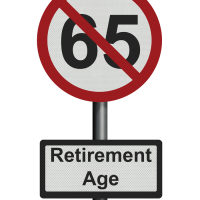
The move has been welcomed by ministers and pensions experts who say it will boost pension savings
Ditching the DRA was one of the coalition government’s first post-election pledges, and the issue was under consulatation at the Department for Business, Innovation and Skills (BIS) last year.
Employment relations minister Ed Davey says: “Older workers have a lot to offer in the workplace and it’s time we got rid of this outdated form of age discrimination. We will do all we can to support businesses with the change.”
The change means employers will no longer be able to issue any notifications for compulsory retirement citing the DRA.
However, bosses will still be able to enforce the DRA if they have already told staff who are due to retire before 1 October.
Despite the new rules, there will still be scope for some employers to justify forced retirement at 65 in certain professions, with BIS citing police officers and air controllers as such examples.
Tom McPhail, head of pensions research at Hargreaves Lansdown, says the move will boost pension funding and has major implications for employers and employees.
For employees, he says the date on which they retire will be up to them and will not be dictated by someone else. Their retirement will depend on a combination of when they want to retire and when they can afford to retire. Symbolically this is an important shift. It means their retirement is their responsibility, for better or worse and hopefully it will encourage them to plan ahead accordingly.
For employers it means that they will no longer be able to dictate when their employees leave. The most effective way to ensure that someone retires is to make sure that they can afford to retire. In order to achieve this, it will be in employers’ best interests not only to pay money into employees’ pensions but also to encourage employees to take an active interest in their retirement savings. This is a healthy alignment of interests and the government should be applauded for making it happen.
















